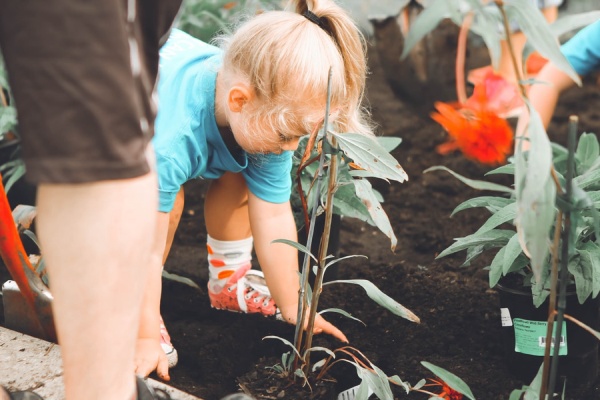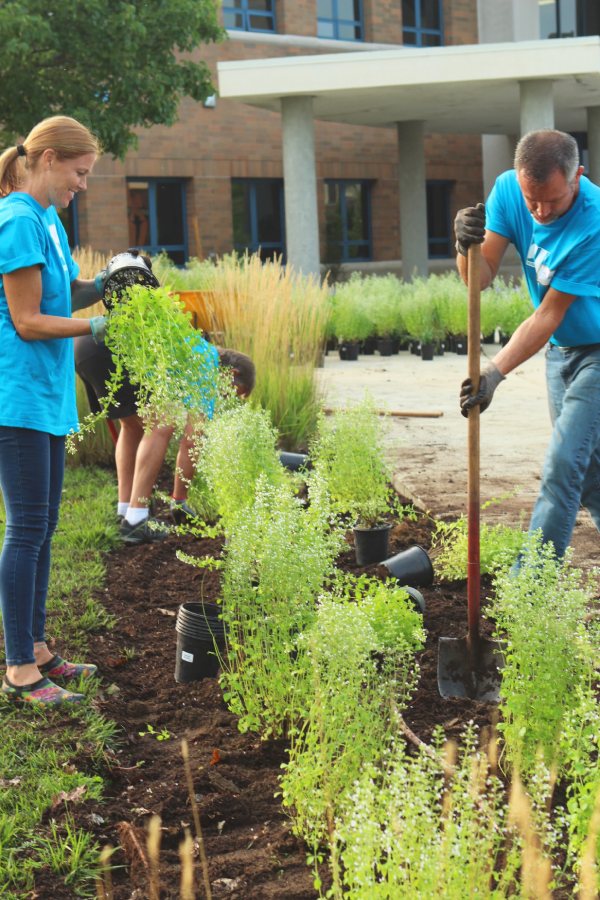“The earth laughs in flowers”
– Ralph Waldo Emerson
If one considers the process of evolution of humans, we find that human beings have been living in concrete jungles since one or two centuries and more so since the last 50-70 years. It is ironic that the most intelligent species on earth have failed to recognise the entities that actually damage their well-being.
If you notice closely, you will see that every living thing on this earth steers clear of factors that pose a threat to its existence. Surprisingly, that attribute has been completely wiped out of human psyche. Moreover, we are still busy inventing and manufacturing stuff that is deleterious to us and our habitat. How did we reach this stage? How did we lose track of the essential elements that build and groom us? How did we stray away from nature – our source of being?
Unfortunately, this destructive habit of ours has not only cost us our physical health but mental health too. We are plagued by stress, depression and suicidal tendencies. Physical ailments due to the polluted environment and chemical exposure have taken a toll on our psychological well-being. Perhaps, it won’t be an exaggeration if we assume that the increasing incidence of cancer cases is a warning sign that we are drifting too far away from nature.
At present, we are at a stage where it is not feasible for everyone to backpack and hitchhike across mountains or just set up camp in a forest amidst tall trees next to a flowing river and let the healing powers of nature flow through your ragged body and mind for months together. So, what can we do? Can we begin small at home? Tending a tiny garden puts your mind at ease. As ‘Gonzalez et al.’ (Published in: Therapeutic horticulture in clinical depression: a prospective study of active components, 2010) have described it in their papers on horticulture and clinical depression, this gardening or “horticultural therapy” is helpful in treating psychological health issues. When your mind is healed, your body follows suit.
Let us understand the benefits of gardening on mental health.
How does gardening boost mental health?
01. Grief Management
Gardening has been proven to provide comfort to people who are dealing with the loss of a loved one. Sarah Wint, the author of the book “Heartfelt Garden”, says that gardening gave her peace and clarity and it helped her cope with the trauma of multiple miscarriages.
There is evidence to believe that horticultural therapy positively affects patients under palliative care, those with terminal diseases and the elderly. There were mood upliftment, better dietary intake and improved social interaction.
02. Gardening Can Give Relaxation from Stress
If you have a close look at today’s working environments, you can see that our brains are subjected to multiple stimuli, starting from getting your kids ready for school, preparing food, traversing the heavy traffic amidst all the honking and blaring of vehicles and then joining in the rat race that lasts all day until you hit the bed, just to continue the cycle the next day.
Your brains are overworked beyond their handling capacity resulting in decreased concentration, restlessness and tendency to make silly mistakes. This is called “Directed Attention Fatigue”. A study done by ‘Stephen Kaplan’ (Published in: The Restorative Benefits of Nature toward An Integrative Framework, 1995), showed that exposure to nature had the potential to restore individuals from attention fatigue.
Gardening has proven to reduce stress hormone (cortisol) in the body. A little bit of playing in the dirt helps you unwind at the end of a long stressful day.
03. Gardening Can Help in Fight Depression
Community gardening allows increased recreational, social interaction that might help an individual build a healthy relationship and get rid of loneliness.

Researchers in recent times are of the opinion that specific microorganisms in the soil are responsible for elevating our general mood in addition to providing immunity boost. The interesting thing about this is that the cells responsible for our immunity communicate with our nervous system. That means a robust immunity is a surprise gift along with psychological well-being.
Furthermore, getting your hands dirty allows you to come into contact with Mycobacterium vaccae, bacteria which promotes the release of serotonin in the body. Serotonin is a hormone which functions as an antidepressant and is responsible for an individual’s state of happiness.
According to the ‘Centers for Disease Control and Prevention (CDC)‘, a moderate-intensity level activity like gardening for 2.5 hours each week can reduce the risk for obesity, high blood pressure, diabetes, heart disease, osteoporosis, depression, stroke colon cancer and premature death.
04. Elevated General Mood
According to ‘Emma V. White and Birgitta Gatersleben’ (Published in: Greenery on residential buildings: Does it affect preferences and perceptions of beauty? 2011),people preferred to live in buildings integrated with plants and foliage. The study included online surveys and interviews in which people opined that they found the vegetated houses with green roof and facade beautiful and had a positive effect in their life.
The sensory feeling that you get when in contact with the soil does wonders to your psychological health.

A 2004 study found that cancer patients injected with bacteria commonly found in the soil had enhanced the quality of life with decreased episodes of vomiting, difficulty in breathing and relief from body pain.
Researchers also found a surge in dopamine in humans during harvest time. That is, the anticipation of plucking a vegetable or just smelling a ripe fruit, created mild euphoria in people. Dopamine is a hormone and neurotransmitter produced in the brain which is responsible for the feeling of ‘pleasure’.
05. Creates Empathy in Children
What can be more tragic for mankind than to have our children suffer from a disorder that is the direct result of straying away from our natural environment? Scholarly articles describe a condition called “nature-deficit” disorder which constitutes physical and behavioural problems, especially in children due to decreased exposure to nature.

When I was in school, we had these ‘science clubs’ and ‘eco-clubs’ where we were allotted a small patch of garden in the school premises. We would be a group of 8-10 students, and this patch was our responsibility for the entire year. Every month, the greenest and healthiest garden was awarded a prize. Irrespective of the rewards, I remember ourselves waiting for free periods and study breaks to run to our garden and work on it. It was something beautiful that touched our young minds and lasted through our adulthood.
Gardening can teach the younger generation to care for another life, however small or big. Children who have been raised to respect every life are slow to violence and tend to be more concerned towards the environment. They practice empathy and compassion for others. If we raise a future generation who doesn’t pluck flowers for its greed but marvels in their beauty, then we can be assured of building a society that is healthy in mind, body and soul.
06. Physical Health Restoration
Heart disease, depression, diabetes is called “lifestyle diseases” or psychosomatic because they are the direct result of the way we lead our daily lives – eating junk food, lethargic working conditions or being couch potatoes.
According to ‘International Diabetes Federation (IDF)’, there are around 415 million people suffering from diabetes and 350 million from depression globally. Furthermore, the increasing trend of urbanization is adding more victims to this estimate.

The current generation who lives in closed apartments and walks on pavements have more allergies than our ancestors who lived and walked on the earth. It looks like our sterile environments are, unfortunately, aren’t so beneficial after all.
Many studies have shown that working on a small patch of garden reduces incidences of heart diseases, obesity, mood disorders and can be used as preventive therapy. It augments an individual’s sense of well-being, vigour, cognitive function and sense of community.
The physical exercise involved in gardening rejuvenates the body along with mind. According to a report in the ‘Daily Mail’, thirty minutes spent raking the lawn, pushing a lawn mower, or digging can be just as effective in the long-term as going to the gym.
Moreover, having a home garden means that you get to eat organic, nutritious fruits and vegetables. What can be more rewarding to your body than a healthy diet?
We have also written article on how to grow organic vegetables on your terrace.
Conclusion
We may not be able to save the world single-handedly, but we can begin somewhere small and that can be somewhere around our homes, schools and gardens. The moment we connect with nature again, there will be a tremendous amount of positive changes in our physical and mental beings. After all, we are the children of mother Earth and being one with nature is as natural as a child being with its mother.
Author Bio
Preema Pinto



